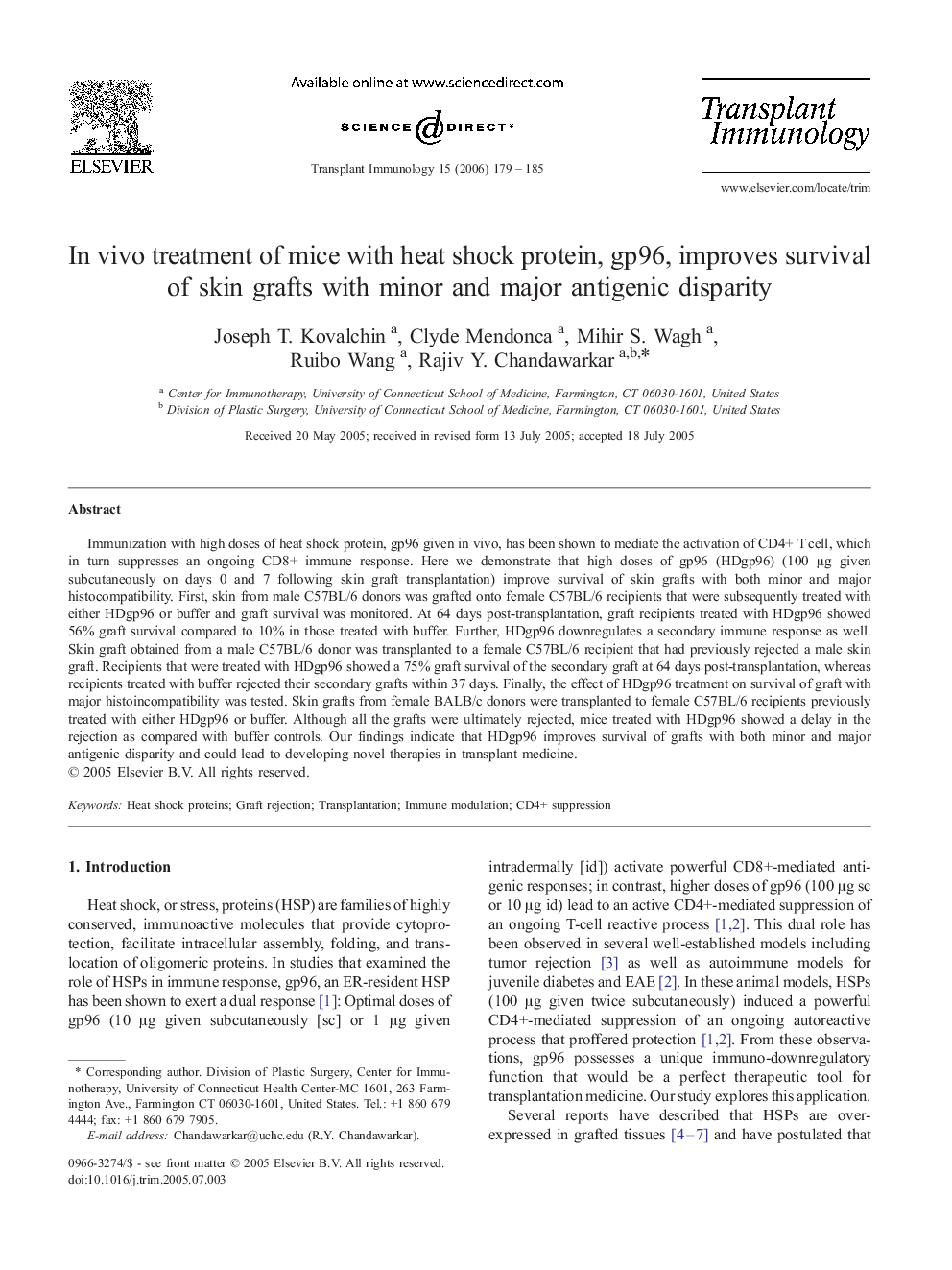| Article ID | Journal | Published Year | Pages | File Type |
|---|---|---|---|---|
| 3392630 | Transplant Immunology | 2006 | 7 Pages |
Immunization with high doses of heat shock protein, gp96 given in vivo, has been shown to mediate the activation of CD4+ T cell, which in turn suppresses an ongoing CD8+ immune response. Here we demonstrate that high doses of gp96 (HDgp96) (100 μg given subcutaneously on days 0 and 7 following skin graft transplantation) improve survival of skin grafts with both minor and major histocompatibility. First, skin from male C57BL/6 donors was grafted onto female C57BL/6 recipients that were subsequently treated with either HDgp96 or buffer and graft survival was monitored. At 64 days post-transplantation, graft recipients treated with HDgp96 showed 56% graft survival compared to 10% in those treated with buffer. Further, HDgp96 downregulates a secondary immune response as well. Skin graft obtained from a male C57BL/6 donor was transplanted to a female C57BL/6 recipient that had previously rejected a male skin graft. Recipients that were treated with HDgp96 showed a 75% graft survival of the secondary graft at 64 days post-transplantation, whereas recipients treated with buffer rejected their secondary grafts within 37 days. Finally, the effect of HDgp96 treatment on survival of graft with major histoincompatibility was tested. Skin grafts from female BALB/c donors were transplanted to female C57BL/6 recipients previously treated with either HDgp96 or buffer. Although all the grafts were ultimately rejected, mice treated with HDgp96 showed a delay in the rejection as compared with buffer controls. Our findings indicate that HDgp96 improves survival of grafts with both minor and major antigenic disparity and could lead to developing novel therapies in transplant medicine.
